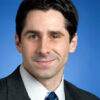Duke Daytime MBA Student Blog

Thoughts on Leadership
Distinguished Speaker Makes Me Think More Deeply
On April Fool’s Day, the Distinguished Speaker Series continued with a visit from Deloitte Touche CEO Jim Quigley. Mr. Quigley came to discuss his favorite topic and one that’s very relevant for Fuqua students: leadership. His talk came on the heels of the release of a collaborative effort at authoring a treatise on leadership in the 21st century, and the result was the wildly popular “As One.”
![]() View video of Jim Quigley’s talk.
View video of Jim Quigley’s talk.
The humble Mr. Quigley detailed his rise to prominence from modest beginnings in southern Utah, but emphasized that respect, work ethic, and good fortune were as much to thank as any innate abilities. His book rose out of the belief that there are few absolutes in leadership, and that each leader must maintain his own style; he merely had benefitted from being in close proximity to so many prominent businessmen that he couldn’t help but mold his own style in their image. His speech was rife with interesting insights which will prove tremendously helpful as students depart for internships and full-time jobs in just a few short weeks.
There’s one part of my brain that tells me when I’m listening to the speeches of these very successful individuals, I should be hanging on every word, and developing some sort of battle plan to emulate them. Success, it seems, is not an accident. For some reason, though, Mr. Quigley’s discourse inspired me to reflect about leadership in my own life. Part of what compelled me to matriculate at Fuqua was its reputation for developing strong, ethical leaders: we are at a crossroads in our history, one fraught with uncertainty and imprecise values, and I’ve always felt that a formidable leader will be at a significant advantage in navigating times like these. But what does that leader look like? How does he/she differ from leaders in simpler times?
I like to believe that my three terms here may have provided me some insights into this inherently subjective dilemma, and not surprisingly, many of them echo Mr. Quigley’s sentiments. Maybe it’s just the effect of being in close proximity with so many motivated people, but I think, in some ways, maybe leading by example has become as prevalent as vocal leadership. It’s hard not to be inspired by how ambitious some of our classmates are, but it’s also hard not to follow suit. In teams on which I’ve worked, the best leaders have been those who are willing to consider all possibilities, even those that seem to have little value initially. In such a diverse class, sometimes it takes a little while for good ideas for manifest themselves, and a sound leader should be patient enough to realize that. Along the same lines, today’s leader, it seems, must paradoxically enough, not always be a leader. A strong leader must always be proactive, but must understand that he or she isn’t the expert on all subjects, especially when we’re in the midst of such accomplished classmates, and must be willing to take a back seat, in order to give everyone a chance to inspire.
Understanding these distinctions is something we should all do from time to time, but with so many distractions, it’s sometimes a little hard to take a step back. And that, I think, may be why I try so diligently to frequent these DSS events: they give us time to reflect, and speakers who have a wealth of experience on which we can be inspired to reflect.



